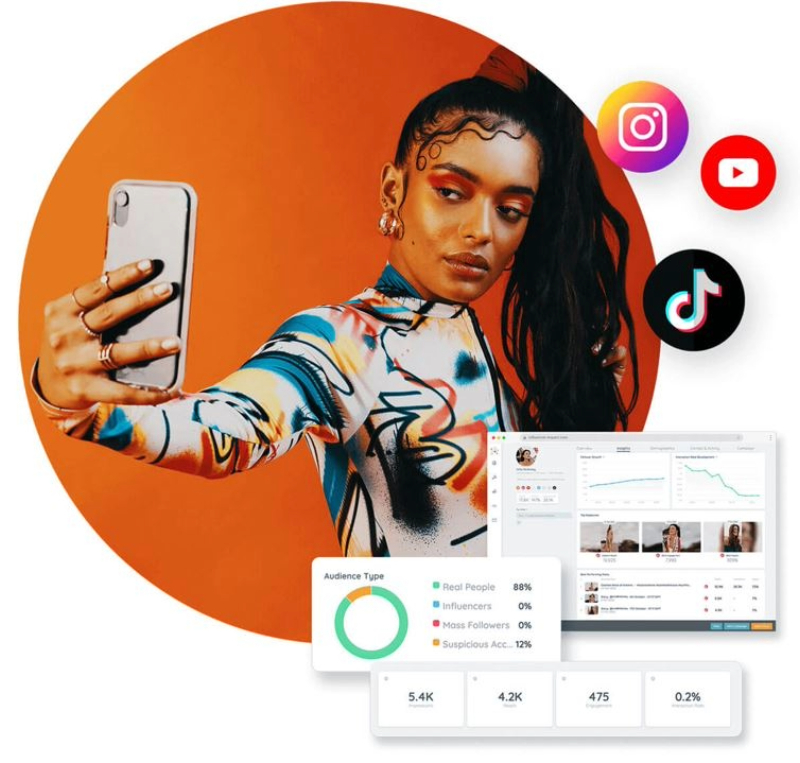Influencer Marketing
In the ever-evolving landscape of digital marketing, a new force has emerged, reshaping the way brands connect with their target audiences. The rise of influencer marketing has transformed the promotional strategies of businesses, leading to a dynamic and engaging approach that leverages the power of social media personalities, celebrities, and content creators. In this blog, we’ll delve into the phenomenon of influencer marketing, exploring its origins, its extraordinary growth, its impact on consumer behavior, and the strategies that have made it an indispensable tool for modern brands.
The Genesis of Influencer Marketing
Influencer marketing is not a new concept, but its recent surge in popularity can be traced back to the advent of social media platforms. Platforms like Instagram, YouTube, TikTok, and others have given individuals a stage to showcase their lives, talents, and expertise to a global audience. This newfound ability to build a following has spawned a new breed of influencers – individuals who wield significant influence over their followers’ opinions and decisions.
Initially, influencer marketing primarily revolved around partnerships with celebrities and macro-influencers who had massive followings. However, as social media evolved, so did influencer marketing. It shifted from the realm of celebrities to micro-influencers and even nano-influencers, who may have smaller but highly engaged and niche-specific audiences. This democratization of influence opened up new opportunities for businesses of all sizes to participate in influencer collaborations.
The Growth Trajectory
The growth of influencer marketing has been nothing short of astonishing. According to a Business Insider Intelligence report, influencer marketing ad spending was estimated to reach $13.8 billion in 2021, and it’s projected to reach $22.3 billion by 2024. This explosive growth signifies the trust that brands place in influencers as authentic conduits to their target markets.
Several factors have contributed to this surge
Authenticity: Influencers often come across as more authentic and relatable compared to traditional advertising. Their content feels less like a sales pitch and more like a recommendation from a friend.
Audience Trust: Influencers build deep connections with their followers, who trust their opinions and recommendations. This trust is invaluable to brands seeking to gain credibility.
Content Variety: Influencers create diverse content, including product reviews, tutorials, unboxings, and lifestyle showcases. This variety caters to different consumer preferences and stages of the buyer’s journey.
Targeted Reach: Brands can collaborate with influencers who have audiences closely aligned with their target demographics, ensuring more efficient and cost-effective marketing.
Measurable Results: Advanced analytics tools allow brands to track the performance of influencer campaigns in real time, offering insights into reach, engagement, and conversion rates.
The Impact on Consumer Behavior
Influencer marketing’s influence extends far beyond engagement metrics and reach. It significantly impacts consumer behavior, prompting them to take action in several ways:
Purchase Decisions: Influencers’ recommendations often lead to direct purchase decisions. According to a survey by Rakuten Advertising, 77% of consumers have made a purchase based on an influencer’s recommendation.
Brand Awareness: Influencer collaborations can swiftly boost brand awareness, introducing products or services to a broader audience and creating top-of-mind recall.
Authentic Reviews: Influencers’ honest reviews and testimonials provide potential customers with valuable insights, helping them make informed choices.
Loyalty and Advocacy: Influencer marketing fosters brand loyalty as influencers repeatedly endorse a product or service. Satisfied customers often become brand advocates themselves.
Community Engagement: Influencers create a sense of community among their followers, making consumers feel part of a larger group with shared interests.
The Strategies Behind Success
Behind every successful influencer marketing campaign lies a well-thought-out strategy. Here are some key strategies brands employ:
Identifying the Right Influencers: Brands carefully choose influencers whose values, audience demographics, and content align with their products or services.
Setting Clear Objectives: Defining specific campaign goals, whether it’s increasing sales, brand awareness, or engagement, helps measure success effectively.
Authenticity: Encouraging influencers to maintain their authenticity and creative control ensures that the content resonates with their audience.
Content Collaboration: Collaborating closely with influencers on content creation results in content that feels more genuine and in line with the brand’s message.
Long-term Partnerships: Establishing long-term partnerships with influencers can build a consistent brand narrative and foster deeper connections with their audience.
Compliance and Transparency: Adhering to regulations and guidelines surrounding influencer marketing, such as disclosing partnerships, is essential to maintaining trust with consumers.
Data-Driven Insights: Leveraging data analytics tools helps brands monitor and adjust influencer campaigns in real time, ensuring optimal results.
The Future of Influencer Marketing
As influencer marketing continues to evolve, several trends are shaping its future:
Niche and Micro-Influencers: Brands are increasingly turning to niche and micro-influencers who have dedicated and highly engaged audiences in specific niches.
Video Content: Video content, especially on platforms like TikTok and YouTube, is becoming the dominant format for influencer marketing campaigns.
AI and Data-Driven Selection: AI-powered tools are helping brands identify the most suitable influencers based on data analysis and audience insights.
Virtual Influencers: Virtual or AI-generated influencers are gaining traction, offering a unique and futuristic approach to influencer marketing.
Sustainability and Ethics: Consumers are becoming more conscious of influencer authenticity and ethics, pushing brands and influencers to be more transparent and socially responsible.
Conclusion
The rise of influencer marketing is not just a trend; it represents a profound shift in the way brands connect with consumers. Its explosive growth, driven by authenticity, trust, and measurable results, has made it an integral part of modern marketing strategies. As brands and influencers continue to evolve their approaches, influencer marketing will undoubtedly play a pivotal role in shaping the future of digital marketing.
In an age where consumers crave authenticity and connections with real people, influencer marketing has proven itself as an invaluable tool for building brand awareness, driving engagement, and ultimately influencing purchasing decisions. As it continues to adapt to new platforms and consumer preferences, the influence of influencer marketing will only grow stronger, making it a captivating space to watch in the dynamic world of digital marketing.
Source:
https://shanebarker.com/blog/rise-of-influencer-marketing/
https://influencermarketinghub.com/
https://www.bigcommerce.com/articles/ecommerce/influencer-marketing/

